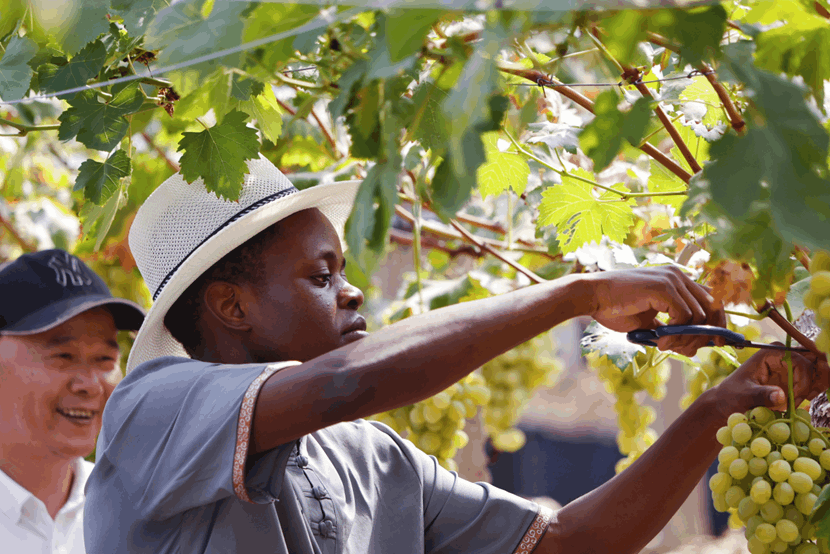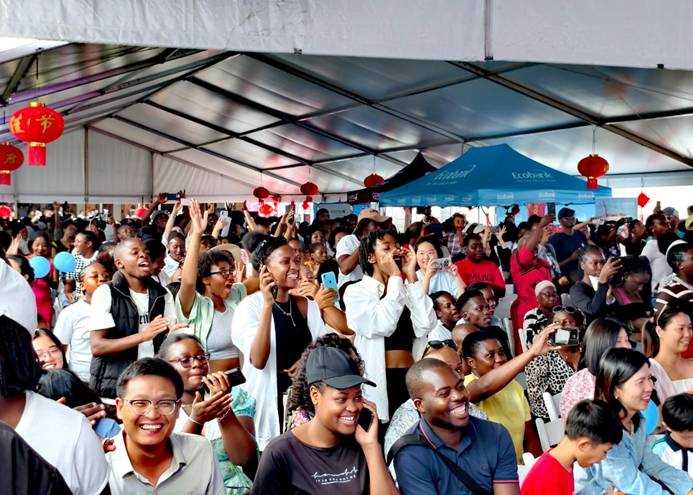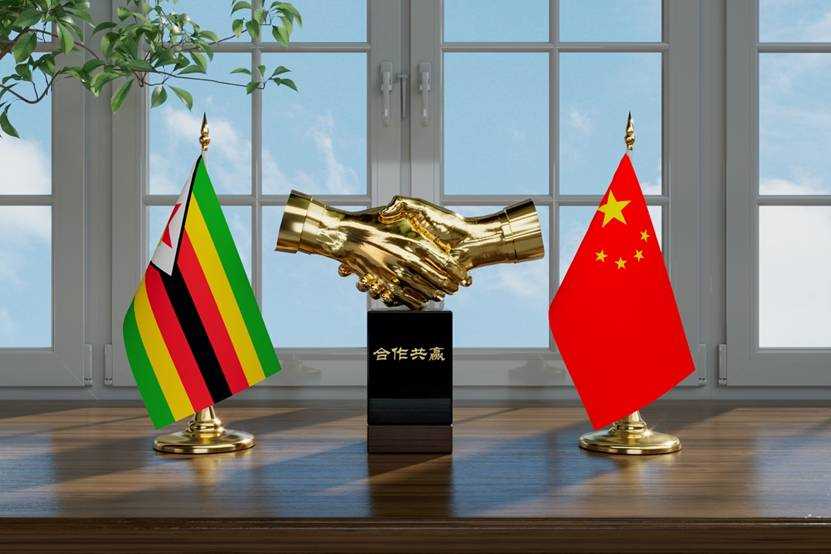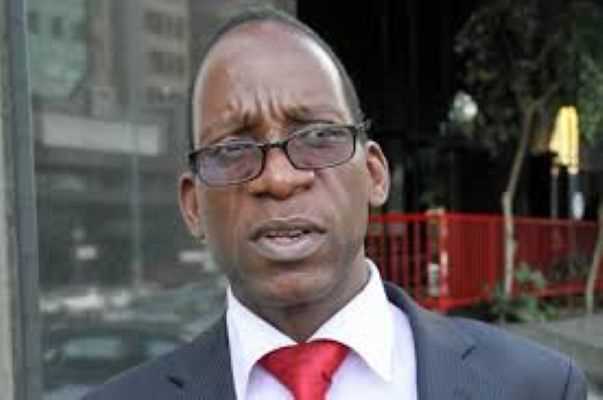
Yin Xiuqi- CGTN
(Beijing, China)--Tungamirai Eric Mupona, a 26-year-old doctoral student from Zimbabwe, has spent the past eight years immersed in China’s academic and cultural landscape. Originally an undergraduate student of applied physics, Mupona’s journey has taken a fascinating turn, leading him to specialize in international affairs and global governance at Zhejiang University, one of the top universities of China. His unique perspective on China’s development, particularly its annual “Two Sessions,” offers valuable insights into the country’s political and economic trajectory.
From Physics to Politics: A Journey of Discovery
Mupona first arrived in China in 2017 as an international student at Zhejiang University of Science and Technology. While his initial focus was on applied physics, his exposure to China’s societal dynamics sparked a profound shift in his academic interests.
“I started developing more interest in studying China, because I got exposed to opportunities to know more about the country,” he recalls.
A pivotal moment came in 2020 when Mupona participated in the 5th China-Africa Youth Festival in Beijing. As part of a delegation representing Zimbabwe, he visited the meeting hall of the National Committee of the Chinese People’s Political Consultative Conference (CPPCC), where he gained firsthand insight into China’s political system.
“That’s where I started knowing about the Two Sessions,” he says, referring to the annual meetings of the National People’s Congress (NPC)—China’s top legislature, and the CPPCC National Committee—the country’s top political advisory body.
This experience inspired Mupona to pivot his academic focus. After gaining his bachelor’s degree in applied physics in 2021, he pursued a master’s degree in international affairs and global governance at Zhejiang University, where he deepened his understanding of China’s political system and its role in shaping the country’s development.
Observing China’s “Two Sessions”
The “Two Sessions,” held annually in early March, are a cornerstone of China’s political calendar. During these meetings, thousands of national lawmakers and political advisers convene in Beijing to discuss policies and strategies for national development. For Mupona, the sessions are a window into China’s policymaking process. "I am looking forward to see what kind of policy packages China is going to produce as we get into 2025,” he says.
Despite some challenges such as external tariffs and anti-globalization pressures, Mupona remains optimistic about China’s economic prospects. “China’s GDP grew by 5.2% in 2023, surpassing its target,” he notes. “I’m confident that policymakers will find solutions to the challenges ahead.”
Exploring China’s Rural Development
Mupona’s academic journey has taken him beyond the lecture halls. He has traveled extensively across China, conducting field research in over a dozen provincial-level regions, or roughly one third of the huge Chinese land.
Related Stories

One of his key areas of focus is Jinyun County, a mountainous region in Zhejiang Province, eastern China.
“I’ve been visiting Jinyun almost every month since 2022,” he says. “It’s fascinating to see how the state promotes economic and social development in rural areas without replacing the role of the market.”
In Lianfeng Village, a small community within Jinyun, Mupona witnessed firsthand the transformative impact of local policies.
“They’ve built industrial parks near the village and a new hospital,” he explains. “The village chief told me about their plans to create jobs for residents, aligning with the concept of ‘common prosperity’ (Gongfu).”
As a scholar, Eric Mupona seeks to uncover the driving forces behind the significant changes in China over the past four decades. He emphasizes the critical role of the Chinese government in shaping the nation’s development trajectory.
“Over the past 40 years, we have witnessed rapid economic growth in China, closely linked to the policies and institutions adopted by the government,” Mupona explains. “These institutions determine the opportunities available for the private sector and the market. The frameworks established by the Chinese government, particularly in rural areas, are designed to foster growth and have proven effective. Rather than merely copying institutions from other countries, China has adapted its approach to fit its unique context.”
Mupona also highlights the importance of regional adaptability in China’s development. He frequently references the Chinese term “Yindizhiyi”, which translates to "adapting plans to local conditions."
“In China, each region has its own methods that may differ based on available resources,” he notes. “While national policies provide a uniform framework, the implementation at the local level varies significantly. This principle of Yindizhiyi is crucial. From coastal provinces like Zhejiang and Guangdong to the inland areas in the far west, we see a variety of development models emerging. This adaptability is key to China’s success.”
Lessons for Africa
As a scholar, Mupona is keen to explore how China’s development experience can inform strategies in other developing countries, particularly in Africa. “China’s success lies in leveraging its competitive advantages and tailoring policies to local conditions,” he observes.
For Africa, Mupona sees significant potential in harnessing its youthful population and natural resources. “More than 60% of Africa’s population is under 25,” he says. “Policies should focus on creating opportunities for this demographic. Attracting Chinese investment could also play a crucial role in driving economic growth.”
A Vision for the Future
Mupona is set to complete his doctoral studies in 2027. He plans to continue his work in China, deepening his understanding of the country’s development model. “There’s still a lot to learn,” he says.
Looking ahead, Mupona envisions a career focused on development issues and diplomacy, particularly in strengthening ties between China and Africa. “My goal is to promote mutual understanding and exchanges,” he says. “China’s journey offers valuable lessons, but it’s up to each country to adapt these lessons to its unique context.”
From his humble beginnings in rural Zimbabwe to his current role as a researcher in one of China’s top universities, Mupona’s journey is a testament to the power of curiosity and determination. As he continues to explore in the world’s largest developing country, his work promises to contribute to a deeper understanding of the country’s role in helping achieve common development of other developing countries, including those in Africa.




















Leave Comments